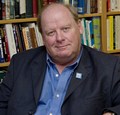Green, Heal and Restore the Earth: Ian McHarg’s “Design With Nature” vision has influenced development of the Ecological Accounting Protocol

Renowned landscape architect, writer and educator Ian L. McHarg (1920-2001) was best known for introducing environmental concerns in landscape architecture. His 1969 book Design With Nature pioneered the concept of environmental planning. Design with Nature is widely considered one of the most important and influential works of its kind. The ecological planning method developed by McHarg was seized upon and used throughout the world. “So, I commend Design with Nature to your sympathetic consideration. The title contains a gradient of meaning. It can be interpreted as simply descriptive of a planning method, deferential to places and peoples, it can invoke the Grand Design, it can emphasize the conjunction with and, finally it can be read as an imperative. DESIGN WITH NATURE!,” wrote Ian McHarg in 1991.









